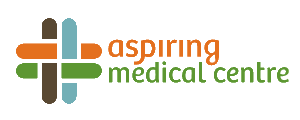Questions on COVID (Health)
Aspiring Medical Centre
20 July 2020, 9:29 PM

Why do we have two terms COVID-19 and SARS-CoV-2 and what's the difference?
SARS-CoV-2 is the virus that is causing all the excitement, if you get unwell with it then the illness you have is COVID-19.
Should we still get swabbed for our cold/flu given there is no COVID-19 in the community?
Yes! The reason is that we are still getting people with COVID-19 at the border in quarantine. Unfortunately, our tests for screening these people are not perfect - they are probably about 80%. Add to this that about half of people who have the SARS-CoV-2 virus have no symptoms. Now imagine a person in quarantine who has SARS-CoV-2 but no symptoms, the chance of them getting 2 negative tests and being allowed to go into the community is about 1 in 25 even though they actually have the virus. This means we rely on the 14-day period to hope they are not infectious. This is not fool proof though which in turn means at some stage the virus will get spread into the community and our only way of finding this is by swabbing people with normal cold or flu like symptoms which is how COVID-19 presents the majority of the time, not just people who are “quite sick”. So, if you have any symptoms, we would encourage you to get a free swab. It is easier now because you just need one swab in the throat (although the one in the nose is still better).
Why aren’t we using antibody tests?
Antibody tests sound great but when you dig a bit deeper, they do not currently give us a lot of useful information. They tell us if you have been exposed to SARS-CoV-2 but not whether you are immune. Unfortunately, just because you have the antibodies doesn't mean you can't get COVID-19 again or that you don’t currently have it. In New Zealand we are currently researching the significance of the antibodies.
What is the deal with whether you have spent more than 15min with someone with SARS-CoV-2? Doesn’t that sound quite arbitrary? Couldn’t you just catch it straight away?
The magical 15min has come from data from early in the outbreak in China where people who had spent more than 15min in close contact with a person who was shedding SARS-CoV-2 were much more likely to have contracted the virus. It is not fully understood but the theory goes something like this; It seems that how much virus you come into contact with seems to determine the degree of illness you get. This is probably why health workers seem to have a disproportionately high number of serious cases. It is also why you might have noticed that you get more sick if you catch a cold from your young kids than you do from a co-worker for example. It takes a certain number of viral particles to overwhelm your frontline immune system, but this number will vary a bit from person to person. If you are close to someone who is infected, at some point the critical number is reached and you contract COVID-19. If you get a large dose that far exceeds this number, then not only does it not take 15min, but you get a more serious illness - think kisses from your lovely but snotty kid. Talking with someone while sitting close to them will take about 15min to exceed the critical number. Sitting far away from someone for longer can also achieve the critical number that makes you ill, for example sitting in a train carriage for an hour.
Why do kids get a less serious illness?
There are two factors theorised here: First that children's immune systems are not as experienced and are less likely to develop a cytokine storm which is the excessive immune reaction that is the hallmark of serious COVID-19 disease. Second is that children's immune systems have more experience with recent coronavirus (there are about 4 types that cause the common cold) and that there may be some crossover immunity. Adults are less likely to have had a recent coronavirus, particularly the elderly.
What does a second wave mean?
A second wave is when the number of cases of COVID-19 are increasing day upon day, but we are not sure where they are coming from. They are being spread among the community from unknown sources. This has a high risk of escalation. By contrast daily cases that are not increasing in number and are arising from known contacts is not a second wave.
Should I be wearing a mask?
We know that if you are shedding SARS-CoV-2 (whether you feel sick or not) you can reduce your transmission rate to others by wearing a 3-layer surgical mask or a heavy fabric mask (eg. denim) by about 60%. So, they are very useful at preventing spread. The exception to this is those masks with a valve on the front (a round plastic circle) - if the wearer is shedding, they send a plume of viral particles out from the valve into the surrounding air. These masks, however, don't seem to provide any protection against contracting it though. An N95 will if it is fit tested and will only last 4 hours.
Did Donald Trump’s comments on bleach cause the spike in cleaning product related poisonings in the US?
Tempting but no, the spike occurred before his comments.
There is no cost for anyone – including visitors and people not registered at a general practice – contacting a general practice with concerns about COVID-19 symptoms such as fever, cough, shortness of breath or a sore throat, and no cost to being tested.
Enrolled patients and visitors alike can also contact Wellsouth’s COVID-19 call centre by dialling 0800 VIRUS19 (0800 847 8719) to enquire about COVID-19 testing.



